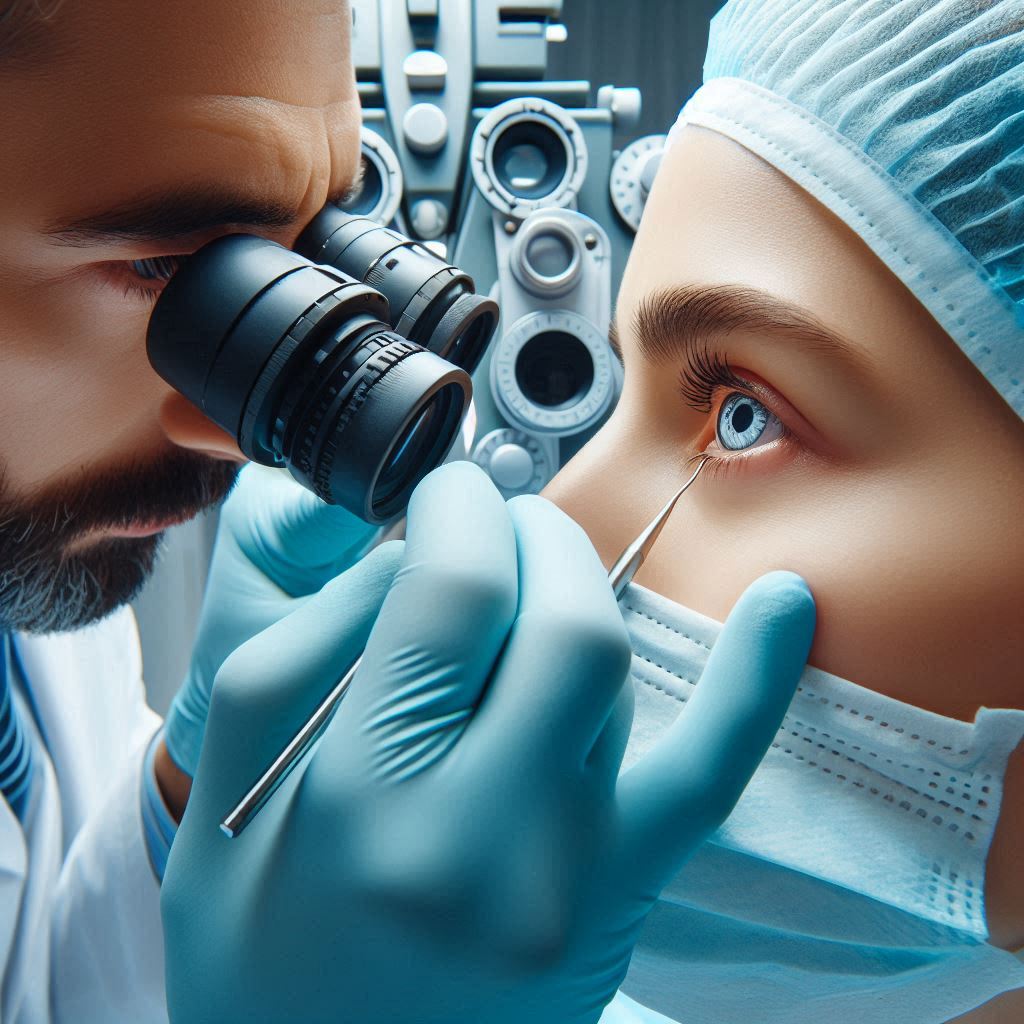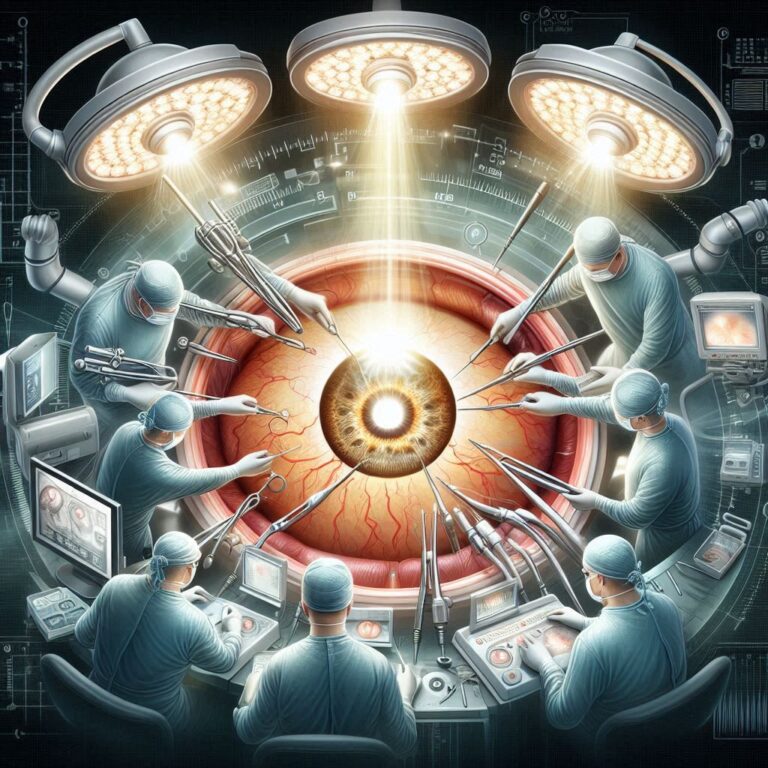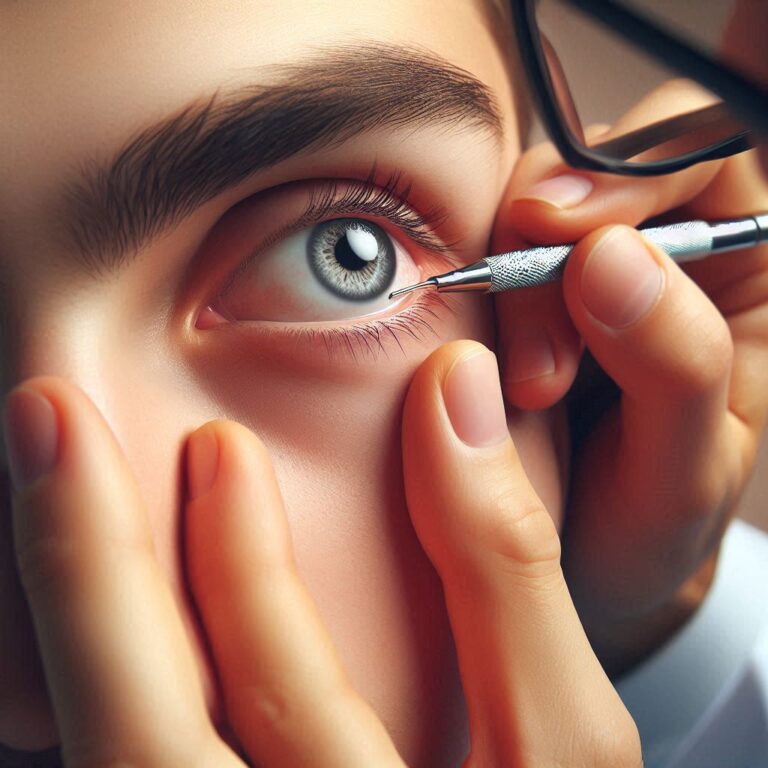
Have you ever noticed your eyelids drooping, struggled with constant tearing, or felt self-conscious about the appearance of your eyes? These concerns, and many others, can be addressed under a specialized branch of ophthalmology called Oculoplasty, also known as Oculoplastic Surgery or Ophthalmic Plastic Surgery performed by a surgically trained ophthalmologist called an oculoplastic surgeon. In this blog, written with the goal of exploring the fascinating world of oculoplasty, answering your questions in clear, easy-to-understand language.
What is Oculoplasty?
Imagine a field that combines the precision of eye surgery with the artistic skill of plastic surgery. That’s oculoplasty in a nutshell! It’s a branch of ophthalmology focusing on the health, function, and appearance of the eyes and surrounding areas, including the eyelids, tear ducts, and eye sockets (orbit) either with surgical or non-surgical treatment. The goal of oculoplasty is to improve the function, comfort, and appearance of the eyes.
Why is Oculoplasty Important?
Our eyes are more than just windows to the soul; they are vital for vision and play a significant role in our facial expressions. Problems with the eyelids, tear ducts, or orbit can lead to:
- Difficulty seeing
- Discomfort and irritation
- Changes in appearance
- Difficulty closing your eyes properly
- Recurrent eye infections
Oculoplasty offers solutions to these problems, improving both the health and cosmesis of your eyes.
Who is an Oculoplastic Surgeon?
An oculoplastic surgeon is a highly skilled specialist who has completed extensive training in both comprehensive ophthalmology and plastic surgery. This unique background allows them to address a wide range of eye-related conditions with expertise in both function and aesthetics.
Common Oculoplasty Procedures
At VIEW CARE under Dr. Garg, we perform a variety of oculoplasty procedures to address your specific needs. Here are some of the most common:
- Eyelid surgery (Blepharoplasty): This procedure removes excess skin, fat, or muscle from the upper or lower eyelids. It can improve vision in patients with drooping eyelids and create a more youthful appearance. When Is Blepharoplasty Needed?
- Droopy upper eyelids (ptosis)
- Excess skin and fat on the eyelids
- Bags under the eyes
- Tear duct surgery (Dacryocystorhinostomy): This corrects blocked tear ducts, a condition that causes excessive tearing, infection, and discomfort. When Is DCR Needed?

- Chronic tearing (epiphora)
- Recurrent eye infections
- Blocked tear ducts
- Orbital surgery: This addresses problems within the eye socket, such as tumors, fractures, or bulging eyes (proptosis). When Is Orbital Surgery Needed?
- Orbital tumors
- Orbital fractures
- Thyroid eye disease (Graves’ disease)
- Eyelid malposition surgery: This corrects eyelids that turn inwards (entropion) or outwards (ectropion), causing irritation and tearing. When Is Eyelid Malposition Surgery Needed?
- Irritation or injury from inward or outward turned eyelids
- Difficulty closing the eyes
- Chronic eye infections or tearing
Looking for a Younger Look? Oculoplasty Can Help!
Oculoplastic surgery isn’t just about medical needs. We also offer cosmetic procedures to enhance the appearance of your eyes and rejuvenate the surrounding areas. These include:
- Botox injections to smooth wrinkles
- Dermal fillers to restore volume loss
- Laser resurfacing for improved skin texture
Oculoplasty vs. Dermatology and General Plastic Surgery: What’s the Difference?
While oculoplasty shares some similarities with these fields, it has a distinct focus and expertise:
Oculoplasty vs. Dermatology
Dermatology focuses on the skin, hair, and nails. Dermatologists treat conditions like acne, eczema, and skin cancer. While they may perform cosmetic procedures, their primary focus is not on the eyes and surrounding structures.
Key Differences:
- Dermatologists treat skin conditions; oculoplastic surgeons focus on the eyes and surrounding areas.
- Oculoplasty requires specialized training in ophthalmology.
Oculoplasty vs. General Plastic Surgery

General plastic surgeons perform a wide range of procedures on the body and face, including breast augmentation, liposuction, and facelifts. Oculoplastic surgeons, however, specialize in the delicate structures of the eyes and surrounding areas.
Key Differences:
- General plastic surgeons have broader training; oculoplastic surgeons have specialized training in eye-related structures.
- Oculoplastic surgery combines ophthalmology with plastic surgery for precise treatment around the eyes.
The Benefits of Oculoplasty
Oculoplasty offers a multitude of advantages, including:
- Improved vision by removing obstructions like excess eyelid skin.
- Enhanced appearance through cosmetic procedures for a more youthful and refreshed look.
- Relief from discomfort caused by eyelid malposition or tear duct problems, improving overall eye comfort.
- Treatment of medical conditions, Oculoplastic surgeons can effectively treat medical conditions such as blocked tear ducts, orbital tumors, and thyroid eye disease, preventing complications and improving quality of life..
Considering Oculoplastic Surgery? Here’s How to Prepare
If you’re thinking about oculoplasty, here are some steps to take:
- Schedule a consultation with Dr. Gaurav Garg, a qualified oculoplastic surgeon. During this visit, we’ll discuss your concerns, goals, and recommend the most suitable treatment options.
- Undergo a medical evaluation to ensure you’re a good candidate for surgery. This may involve eye exams, imaging tests, and blood work.
- Open communication is key! Discuss your expectations and any apprehensions you may have. Understanding the potential outcomes and risks is crucial for making an informed decision.
- Follow all pre-operative instructions provided by Dr. Garg. This may involve stopping certain medications, arranging transportation, and fasting before surgery.
Recovery and Aftercare
Recovery from oculoplastic surgery varies depending on the procedure. Here are some general tips for a smooth recovery:
- Follow Postoperative Instructions: Adhere to all postoperative instructions given by your surgeon. This may include using prescribed eye drops, applying cold compresses, and avoiding strenuous activities.
- Attend Follow-Up Appointments: Regular follow-up appointments with your surgeon are important to monitor your healing progress and address any concerns.
- Protect Your Eyes: Protect your eyes from injury and avoid rubbing them. Wearing sunglasses can help shield your eyes from bright light and dust.
- Be Patient: Healing takes time, and it is normal to experience some swelling and bruising after surgery. These symptoms will gradually subside, revealing the final results.
Conclusion
Oculoplasty is a specialized field that combines the expertise of ophthalmology and plastic surgery to address a wide range of conditions affecting the eyes and surrounding structures. Whether you need functional improvement or cosmetic enhancement, oculoplastic surgery can help you achieve your goals. By understanding the basics of oculoplasty, the importance of these procedures, and how to choose the right surgeon, you can make informed decisions about your eye care and enjoy better vision, comfort, and appearance.


